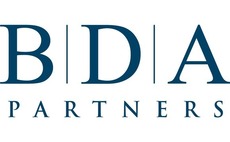
Q&A: Shearman & Sterling's Lorna Chen
For domestic private equity funds in China, regulation remains a clouded issue - it is unclear who should be responsible for the issue and how. Lorna Chen, a partner with Shearman & Sterling, explains where the difficulties lie
Q: Why were PE and VC excluded from China's Securities Investment Fund Law (SIFL)?
A: First, the National People's Congress pulled back as a result of uncertainty and anxiety. Second, it is deemed to be a political compromise to keep the status quo. When the draft SIFL came out including proposed language regarding private equity and venture capital, it suggested that the Chinese Securities Regulatory Commission (CSRC) would be responsible for regulating the industry. Then, during the drafting process, a number of private equity professional associations submitted a joint position paper voicing their opposition to including PE and VC in the revised law without specifying how the industry is going to be regulated and who is going to regulate it. The provisions were then removed from the final draft.
Q: Why are local private equity fund managers so anxious about falling under the SIFL?
A: They are afraid that excessive regulation of the industry could restrict the industry's development. There is no objection to proper regulation, but they are against excessive regulation, or vague provisions that could lead to excessive regulation. The draft SIFL did not clarify fundamental questions such as which regulator would be the proper supervisor of the industry. It was unclear how different government agencies such as CSRC and National Development Regulatory Commission (NDRC) would divide their power in this respect: Whether they both would regulate the industry; whether some exemption or lighter regulation would be applicable to PE fund managers; and where the line would be drawn between a public fund and a PE fund because they are included in the same set of laws. To illustrate the issue of which regulation to follow, the NDRC recently reiterated its call for PE funds with more than RMB500 million ($81 million) in assets to register with local governments. The CSRC issued a similar registration requirement only one month ago. This created uncertainty over whether PE managers have to comply with both sets of rules. Without any clarification, compliance would be very difficult. Operational risks would also increase due to confusion among managers as to which regulator they should report to.
Q: Do you think China's regulators should elaborate a new set of rules specifically for PE and VC, different from the SIFL, to better regulate the industry?
A: Ideally, there should be a single set of rules for private equity and venture capital with clear regulations including registration and reporting procedures. Guidelines in the form of government rules and circulars are fine to keep the regime flexible. If would also be helpful if the two regulators could coordinate with one another to issue those rules.
Q: What does the uncertain regulatory environment mean for foreign fund managers operating in China?
A: Foreign private equity fund managers are frustrated particularly when they raise capital in China because of a lack of clarity in the regulatory framework. Managers operating funds with more than 200 investors in China may be classified as public under the Chinese securities laws and rules, although those regulations were not devised with PE and VC in mind. Some conservative foreign fund managers are keeping their China expansion plans on hold due to these uncertainties.
Q: How do offshore US dollar funds compete with onshore renminbi-denominated funds?
A: The emergence of renminbi funds in the last couple of years has obviously led to an increase in competition for foreign fund managers. If you look at the numbers, the market is packed with renminbi funds that are aggressively looking for portfolio companies. In addition, foreign fund managers find it harder to tap the China market because they require government approvals for transactions and currency conversion. Renminbi fund managers, on the other hand, do not have to go through the same procedures, which means they can deploy capital faster and more easily.
Q: To what extent have illegal fundraising activities affected domestic managers in China?
A: In mature markets, private equity is more sophisticated and institutional, which means that investors can only participate if they meet certain criteria. In China, the fundraising process is loosely regulated and this has led to illegal fundraising activity. Domestic distributors have taken advantage of loopholes in the law to sell products through retail channels to investors who don't fully understand the asset class. It creates a lot of trouble and unfair competition for both foreign and legitimate domestic fund managers.
Latest News
Asian GPs slow implementation of ESG policies - survey
Asia-based private equity firms are assigning more dedicated resources to environment, social, and governance (ESG) programmes, but policy changes have slowed in the past 12 months, in part due to concerns raised internally and by LPs, according to a...
Singapore fintech start-up LXA gets $10m seed round
New Enterprise Associates (NEA) has led a USD 10m seed round for Singapore’s LXA, a financial technology start-up launched by a former Asia senior executive at The Blackstone Group.
India's InCred announces $60m round, claims unicorn status
Indian non-bank lender InCred Financial Services said it has received INR 5bn (USD 60m) at a valuation of at least USD 1bn from unnamed investors including “a global private equity fund.”
Insight leads $50m round for Australia's Roller
Insight Partners has led a USD 50m round for Australia’s Roller, a venue management software provider specializing in family fun parks.







